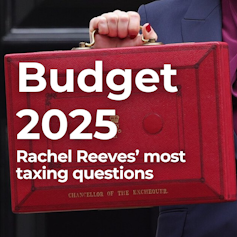The financial crisis of 2008 left deep scars on the British economy. The average UK household is now estimated to be 16% poorer than it would have been had that crisis never occurred.
Given that average annual household income is around £55,200, this suggests each one is losing out to the tune of £8,800 per year.
Globally, it is estimated that around 100 million more people are living in absolute poverty as a direct result of the crisis. Meanwhile, government debt levels around the world increased by a third.
Ever since the crisis, the general consensus among politicians and economists seems to have been that tight financial regulation is necessary to ensure a similar disaster does not happen again. The Bank of England in particular has been a global leader in pushing for new types of international safeguards.
Now though, the UK government is leading calls for financial red tape to be cut. Breaking from its traditional position as an advocate for strong regulation, the Labour party has promised “the most wide-ranging package of reforms to financial services regulation in more than a decade”.
The idea is that easing up on the rules will boost growth by encouraging bank lending and attracting international finance. The prime minister, Keir Starmer, appears to believe that strict regulation has dampened activity in a sector which the UK economy relies upon. As his chancellor Rachel Reeves put it, existing regulation “has gone too far in seeking to eliminate risk”.
And it’s true that some regulation has been overly complex while producing few tangible benefits. But the changes signalled by Reeves and Starmer point to a much broader project of rolling back key safeguards that were put in place to avoid a repeat of the financial crisis.
This year, some of the regulations aimed at limiting risky mortgage lending – a key cause of the 2008 crisis – have been loosened. And Reeves has promised further sweeping changes which would, for instance, dismantle key parts of the “ringfencing” regime which separates risky investment banking from retail banking.
In doing so, she is ignoring repeated warnings by regulators (including the Bank of England) who stress that such moves will make the financial system much less stable.
The risks attached to these changes are even more worrying in an environment where Donald Trump is pushing an aggressive agenda against regulation. The US and UK are both hesitant about implementing the newest version of an international framework for banking regulation which is widely regarded as critical to continued financial stability. The future of that framework will be uncertain if two of the world’s biggest financial superpowers withdraw their support.
